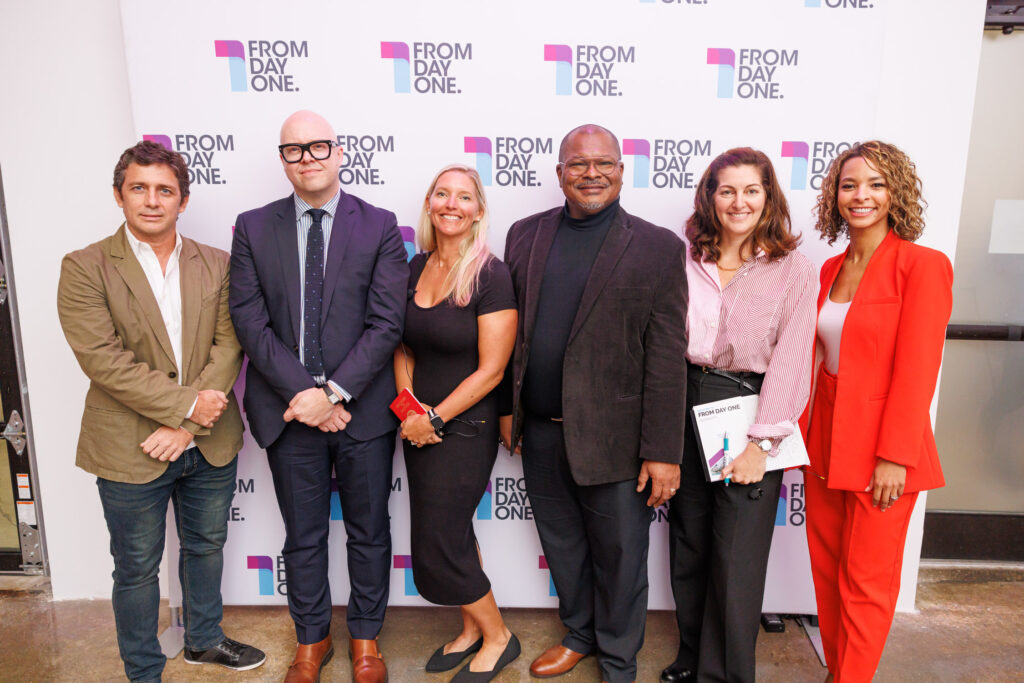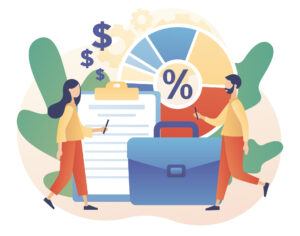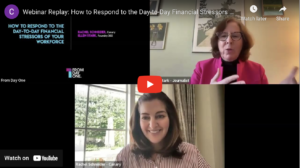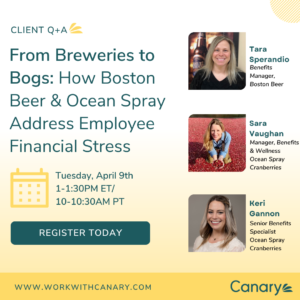Late last year, I had the pleasure of speaking about how making work meaningful and worker well-being intersect at From Day One’s Miami conference: Rediscovering Community Amid Changing Corporate Values. Constance Jones of NBC 6 News expertly moderated this opportunity to think about both what makes work meaningful and how to make work meaningful.
A lot of my mental space is taken up with this question. I’m running a company that provides employees with fast, equitable access to financial relief in the face of financial hardships. I want our work to be meaningful for our team, as well as for the HR teams and struggling employees to whom we deliver services. The insights that my fellow panelists shared expanded my thinking in some new, important ways — especially as it relates to how meaningful work overlaps with creating a workplace culture that supports true and lasting financial well-being for employees. After all, living a financially secure life is the major reason people work.
I hope that sharing what this conversation sparked for me helps your own thinking about making work meaningful for you and your colleagues.
The conversation started strong, with Constance asking each of us to talk about a place where we’ve worked that we felt was aligned with our own personal purpose.
Before you read on, stop and think: does your current work align with your personal purpose? And, now, how does your answer make you feel about showing up there every day and giving it your all?
The panel’s answers revealed four pillars of meaningful work to help guide how we support our teams:
- Financial Health: Supporting myself and my family financially makes work meaningful.
- Alignment: Doing what my company does makes work meaningful.
- Achievement: Doing a good job in my specific role makes work meaningful.
- Connection: Feeling connected to my colleagues makes work meaningful.

It’s time to step back again: Where in this list does your own definition of purpose, your own personal WHY, at work show up?
Shawn Moore, Director of DE&I at Ross Stores suggested that this is similar to a Maslow’s hierarchy of needs in which the basics of earning a living is the foundation of purpose for everyone, and then we add on from there. There’s an important truth in that assessment. Since 63% of Americans live paycheck to paycheck, 49% of employees find it difficult to meet household expenses on time each month, and 3 in 4 workers spend over nine hours per week stressing about finances (while at work, btw), it is clear that employers need to invest in providing a living wage for all working people.
But beyond that, the group felt that all of these elements matter and that different people may mix and match or weigh them differently. While everyone needs to be able to support themselves and their families, some people forgo more money to have more passion for what their employer does. Some people are fueled by their own contributions and accomplishments, while others are motivated by their relationships with their co-workers.
That puts companies in a challenging position. All people want to connect their work to their personal WHY, but those personal WHY’s vary.
That starts to sound overwhelming until you get inspired by all the cool things companies do to find overlap between their employees’ personal WHY’s and the work that they do. My co-panelists shared some fantastic examples:
- Shawn Moore spoke beautifully about how Ross employees find passion in their ability to delight customers. It’s meaningful work to provide well-priced goods to people who need them. Ross has also invested in its Employee Resource Groups; the community they create has blossomed into a deep commitment for many employees.
- Abbe Partee, VP, Head of Global Certified Learning at DHL Supply Chain, shared how the pandemic brought out the best in DHL’s purpose when they were able to ship necessary health and safety supplies around the world. More recently, they’ve invested in making the connection to individual contributions more salient by empowering employees to track their progress along a learning path with a company “Passport.”
- David Bator, Managing Director of Achievers Workforce Institute, shared research about how companies that invest in recognition – encouraging managers and employees to applaud each other’s contributions large and small, regularly and often – build people’s sense of both their individual contribution and their connection to each other.
- Federico Demarin, Chief People Officer at Latam, GroupM, talked about how purpose can be integrated into every step of the employee journey, from the hiring process on, by encouraging employees to connect the dots between their personal WHY’s and their work.

These examples gave a new spin on some of the reasons why I am so passionate about the work that we do at Canary. Yes, access to emergency funds is a crucial part of enabling all working people to meet their baseline WHY around financial well-being – and, to be blunt, if you don’t accomplish that, then whatever your company says about its purpose will be heard as a lot of meaningless corporate-speak. But, the way that Canary works with companies to set them up also helps with each of the three other possible WHYs that might motivate individual employees for increased worker well-being. It’s a solution that promotes strong alignment with company values and actions, recognizes individual contributions, and builds deeper connections across the team.
Want more insights into worker well-being?
Join Rachel Schneider on March 7th as she leads a conversation to explore actionable insights and strategies to empower HR teams to make an immediate, meaningful impact on worker well-being. Register today for the free webinar, “Thriving Together in 2024”, hosted by From Day One.
Ready to learn how your organization can invest in employee financial well-being?
Reach out to our team today to learn about supporting employees through financial hardships. In the meantime, download our most recent Impact Report to learn how employee relief funds support modern, diverse workforces in uncertain times.






